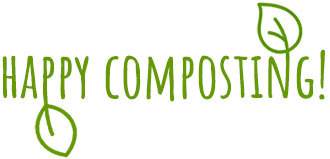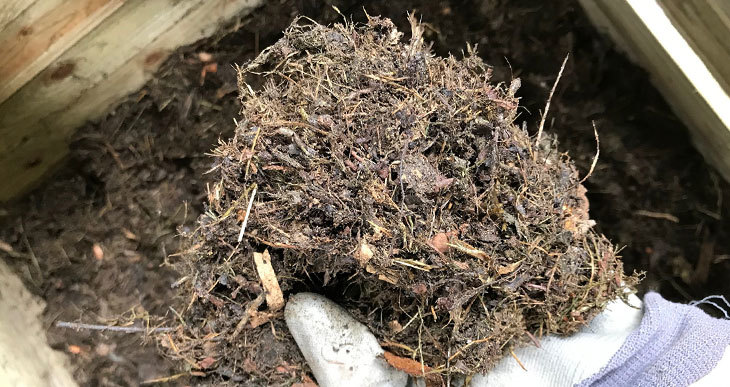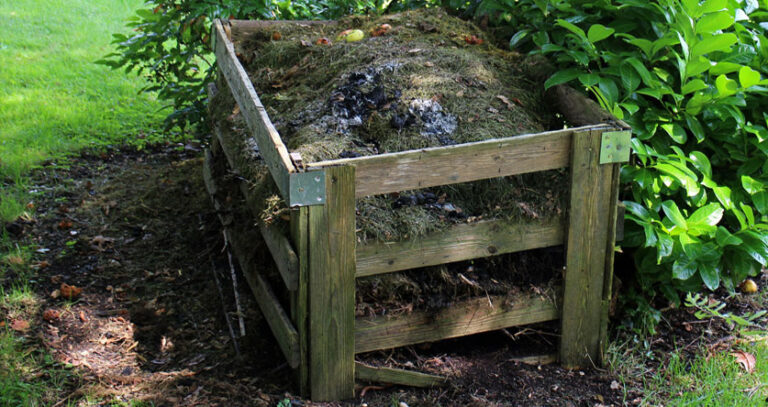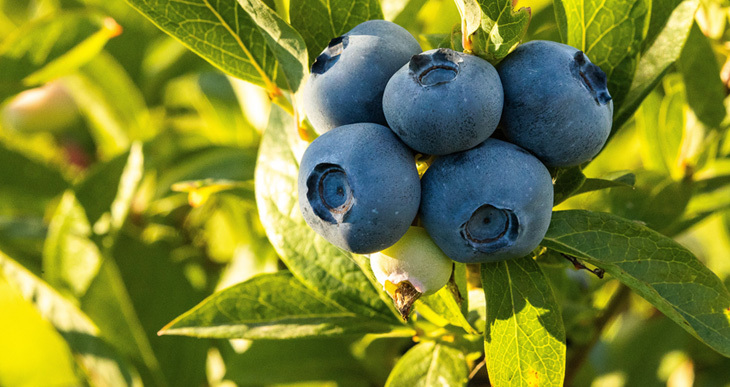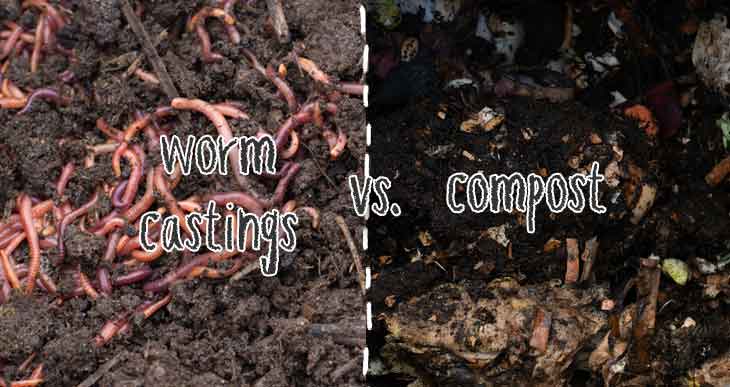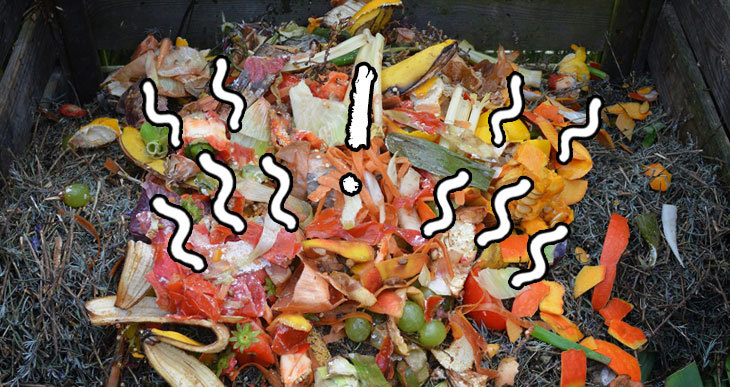Compost vs Fertilizer (The Little Known Difference)
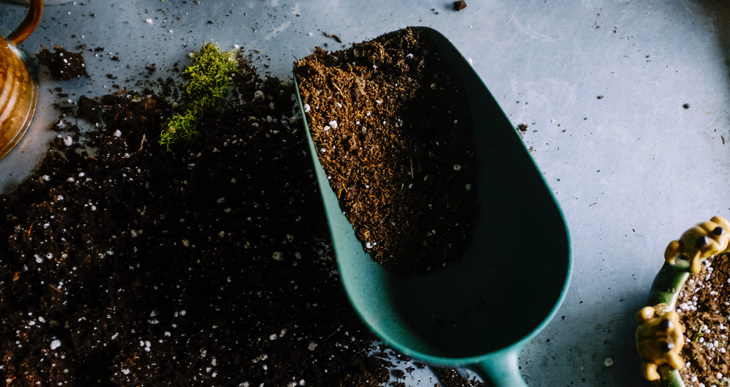
You look confused !
And I totally understand…
In the gardening world, the proper use of compost and fertilizers can be bewildering. But in a few minutes all will become clear !
I’m going to explain the essential differences between fertilizers and compost.
So next time you meet your gardening pals you can astound them with the depth of your remarkable knowledge 🙂
Let’s get cracking…
Is compost fertilizer?
It’s important to understand that these two things are not the same. There are some similarities to the benefits they provide, but the roles of fertilizer and compost are quite different. Nevertheless, compost does help plant fertility even though it is lower in nutrients.
To get a better grasp of this, let’s start by defining exactly what each of these “products” does for your plants.
What is fertilizer used for ?
It’s pretty simple really. Fertilizer improves plant fertility.
It does this by providing the major nutrients necessary for plant life and efficient growth. These substances are well known to most gardeners as “NPK”, or nitrogen (N), phosphorus (P) and potassium (K).
Not all labels on fertilizer actually say “NPK” but they usually give a series of three numbers which represent the percentage of each macronutrient the fertilizer contains.
Some fertilizers offer more of one substance than another, which lets you choose the type of fertilizer according to your soil conditions, or the needs of plants you’re trying to grow.
So what does compost do?
Simply put, compost is decomposed organic matter.
When you add compost to soil, this is more accurately described as a “soil amendment”. In other words it alters the soil in an advantageous way.
Compost enriches the soil and helps plant growth in a number of ways.
It contains beneficial microorganisms and microbes.
These act as an inoculant which makes soil healthier and can protect plants from diseases. In addition, the microbial activity helps release certain nutrients which the plants feed on.
For soil to be healthy it needs good structure.
And compost enhances the structure of your soil, improving things like water retention but also aeration. This is because it contains humus which improves soil aggregation.
Let me explain that quickly. Humus is organic matter which doesn’t decompose. This is stringy, fibrous matter which remains in the compost after everything else has rotted. And it’s very useful for soil aggregation, which is another way to say “clumping”. Soil particles such as clay, silt and sand are bound together into aggregates with the help of the humus. This is a good thing !
Another useful property of compost is that it contains a number of nutrients and micronutrients.
And this is where the confusion with fertilizer starts!
After all, doesn’t fertilizer supply nutrients as well?
The truth is, compost contains “some” nutrients, but not in quantities to provide everything needed by most plants.
So compost really shouldn’t be considered as fertilizer at all.
What’s the difference between compost and fertilizer?
Here’s a simple way to remember the difference between fertilizer and compost:
- Compost enriches soil.
- Fertilizer feeds the plants.
Each component has its role to play, and both contribute to the success of your plants and the health of your yard.
Do you need to fertilize if you use compost?
Because compost doesn’t contain everything a plant needs for good nutrition, you should consider using fertilizer as well.
It’s tricky to produce compost which is perfectly balanced and contains a high level of NPK. There are various ways you can try to boost the NPK of compost by adding natural sources of nitrogen, phosphorus and potassium, but the simplest solution is to worry about nutrition when you mix compost into your soil by adding fertilizer at the same time.
Can you use compost and fertilizer together?
Yes you can. And you probably should.
You can combine both together when you prepare your soil before adding plants or crops.
The tricky part can be knowing what type of fertilizer to add. This will depend on:
- The type of plants
- The condition of your soil
For example flowering and fruiting plants thrive better in soil that is rich in phosphorus. Whereas leafy plants or grass prefer conditions that are high in nitrogen.
Knowing this ahead of time can help you choose the type of fertilizer needed.
The condition of your soil, and in particular its pH, can have an impact on the type of fertilizer required. A pH which is much too high or low can literally kill plants !
A quick reminder: pH is a measure of the soil’s alkalinity or acidity, sometimes referred to as “sweetness” or “sourness”. The pH of your soil is a very useful thing to know. You can find this out using a simple soil test kit like this.
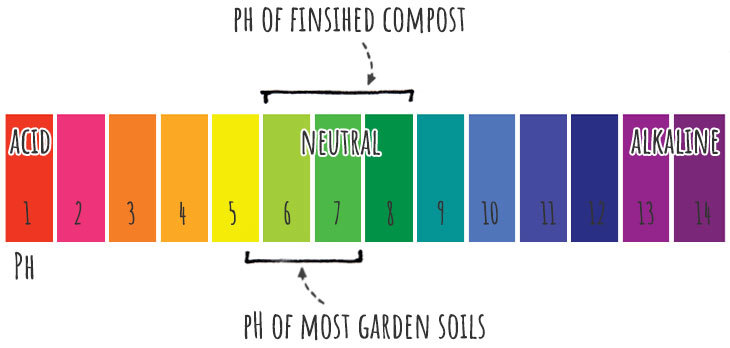
Fertilizers can be organic (natural) or inorganic (chemical).
Chemical fertilizer is an artificial product made from petroleum products and requires more processing (energy) to make.
There are some important disadvantages to using inorganic fertilizer.
Fertilizers like this can cause damage to the beneficial microbes and bacteria in the soil which are responsible for releasing nutrients to plants.
Also, the composition of these chemical fertilizers is mostly salts (because they need to be water soluble to release their nutrients into the ground). They increase the concentration of salt in the soil and retain moisture. The salts bind with water making it unavailable for plants.
Organic fertilizer is made from natural animal and plant waste products and requires less processing (more energy efficient).
They are considered “slow release” because they depend on the microorganisms within the soil to break them down and release their nutrients.
You can think of them as concentrated organic materials with high levels of macronutrients (NPK) required by plants.
What is better compost or fertilizer?
You probably understand by now that both compost and fertilizer are useful additions for improving the health of your soil and plants.
Neither is better, and each one compliments the other.
Compost vs. Fertilizer Experiments
Some studies have tried to compare the use of only fertilizer or only compost. The results show that compost has very favorable effects on the health of plants, reducing diseases significantly. Whereas plants that only received fertilizer grew more.
The overall conclusion seems clear.
An intelligent use of both components would have the biggest benefit for your plants.
Compost and Fertilizer together
When you make compost you put a great deal of effort into maintaining an ideal environment for all the important bacteria and other microorganisms to do their work of decomposition. These microbes continue to work in favor of your plants when you add it to the soil.
It seems logical therefore that you shouldn’t mix your compost with inorganic fertilizer which just destroys the community of organisms you worked so hard to build.
You can choose from a huge variety of organic fertilizers to mix with your soil when you add compost.
Here are a few suggestions:
Note: If viewing on phone, please swipe the table to scroll horizontally.
| Material | Nitrogen (N) | Phosphorus (P) |
Potassium (K) |
|---|---|---|---|
2,5 | 0,5 | 2,5 | |
Oak leaves | 0,8 | 0,35 | 0,15 |
Peanut husks | 3,6 | 0,7 | 0,45 |
1 | 0,1 | 2 | |
Sawdust | 0,2 | – | 0,2 |
Cow manure | 0,5 | 0,2 | 0,5 |
Horse manure | 0,6 | 0,3 | 0,5 |
Hen manure | 1.1 | 0,9 | 0,5 |
4,0 | 12 | 0 | |
12 | 0 | 0 | |
Soybean meal | 7,0 | 1,2 | 1,5 |
– | 1,8 | 5 | |
Rock phosphate | – | 38 | 4,5 |
If you don’t make your own compost, what are you waiting for ?
Composting is easy and has a huge range of benefits. And you won’t have to keep buying it for your garden 🙂
Happy composting !
